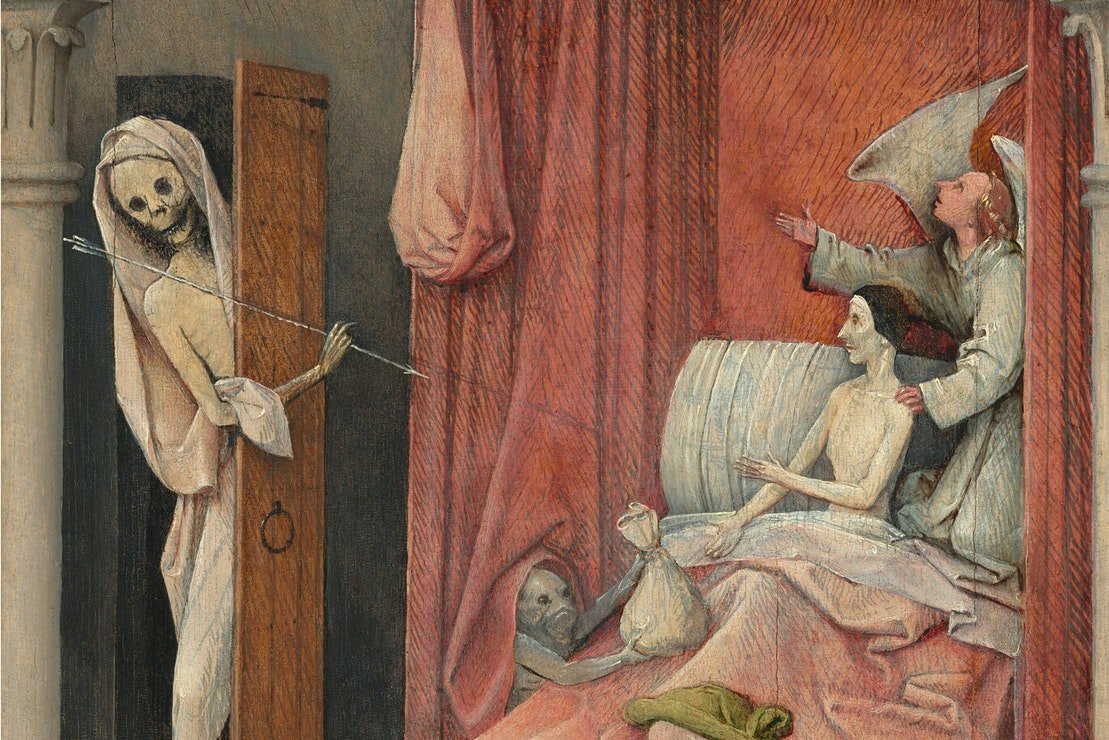The Chilling Popularity of Anti-Vax Deathbed Videos

It’s not hard to understand why vaccinated people might be drawn to these sad spectacles. They are righteously angry from spending the better part of two years confined, afraid, and on the wrong side of a deadly free-rider problem. But while tales of the unvaccinated repenting are narratively tidy, their moral significance—and what it really means for people to view them—is far less clear.
Many religions fixate on the notion of a “Good Death.” In the decades after a fourteenth-century bubonic plague killed at least 25 million in Europe alone, authors under the patronage of the Catholic Church began to publish great tomes on the matter of ars moriendi, or “the art of dying.” Over the centuries, the genre expanded, and certain themes emerged: For Christians, to die well required an awareness and acceptance of one’s impending death and, ideally, evidence of God’s favor. Certain artifacts of ars moriendi have persisted despite increasing secularization, such as our enduring emphasis on last words, famous or not: Our final utterances remain “the cornerstone of a romantic vision of death—one that falsely promises a final burst of lucidity and meaning before a person passes,” Michael Erard wrote in The Atlantic in 2019.
A peculiarly American notion of the Good Death developed in the Civil War, vestiges of which are still with us today. Separated from their families, soldiers carefully observed each others’ final moments and sent detailed condolence letters home, accounting for every scrap of evidence of a dead man’s salvation, according to historian Drew Gilpin Faust, author of This Republic of Suffering: Death and the Civil War. But the Bad Death, as exemplified in executions of soldiers for rape, murder, and other crimes, had a “didactic function,” too. “The enactment of elements of the Good Death even at the foot of the gallows, sometimes even an address from the prisoner urging his fellow soldiers to ‘beware of his untimely fate’—all provided indelible messages about both good living and good dying, ones that witnesses took very much to heart,” Gilpin Faust writes.


